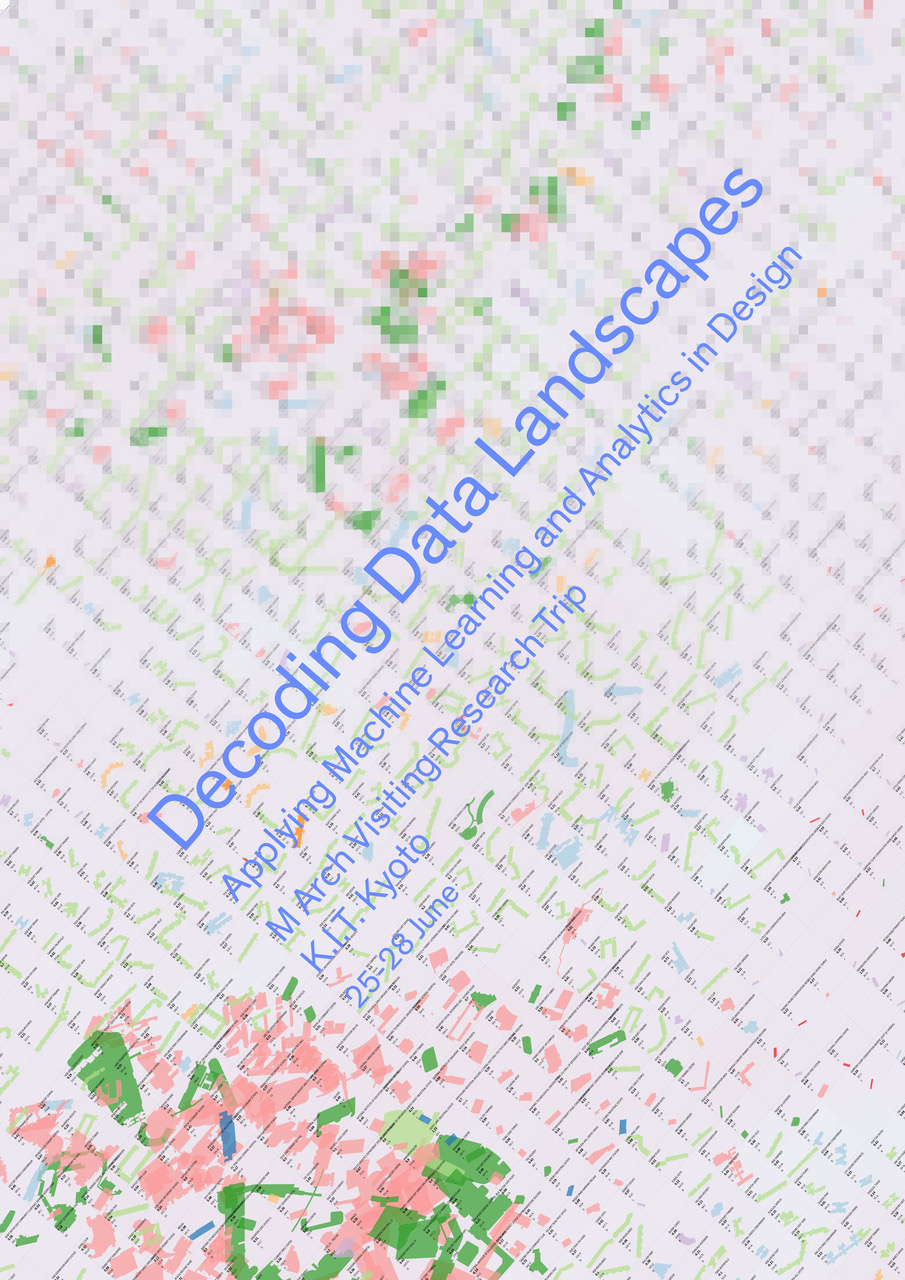KIT trip: Decoding Data Landscapes

Big-data and Machine learning are slated to change the way that we live, work and play. The analysis of big-data has shown new ways to see the world and demonstrated a powerful capability to influence if applied well. Equally, general machine learning and specifically neural networks have enabled radically new ways of processing data; resulting in new products and services. Showing the ability to outperform humans in some fields, but also recently to be creative producers of content. In contrast to other industries architecture has been slow to embrace these topics, however with the advent of modern computing and tools they are now sufficiently accessible to be tractable to our community and design problems. This is an exciting epoch and one that architects should embrace so that they can act to shape the future use of this technology in design to one which serves in the interests of good architecture.
This workshop will focus on exploring a big-data and machine learning approaches to derive social and spatial insights and interventions into urban spaces; specifically introducing students who may not be familiar with these topics, with the basic theory and methods to allow them to apply these tools and techniques to design in the urban context.
The field of inquiry will be Kyoto and Singapore, using public data-sets from Twitter and Instagram, including a 12 million geographically located tweets from 2012-2015. Students will be challenged with investigating relevant architectural and spatial questions, relating to social and liveability which the data can help uncover. Learning how to develop these in to analytical questions and machine learning routines, using the big data as well as finding other sources with urban plans to link space to activity by finding correlations. Initially with visualisations to link the social and digital space in ways that can help designers and master planners to understand the city in more rich ways, but also developing creative ML which could act with the human designer, specifically Generative Adversarial Networks.
This workshop is standalone and will assume no prior knowledge except for some experience in Python programming. It is designed to introduce new topics not previously covered and provide new skills specifically in A.I.. This workshop is part of a trial for research orientated visiting workshops in the graduate programme.
It will be in collaboration at KIT and held on their campus, it will be joint by KIT students as part of a wider exchange.
This trip is led by Assistant Professor Sam Conrad Joyce.
